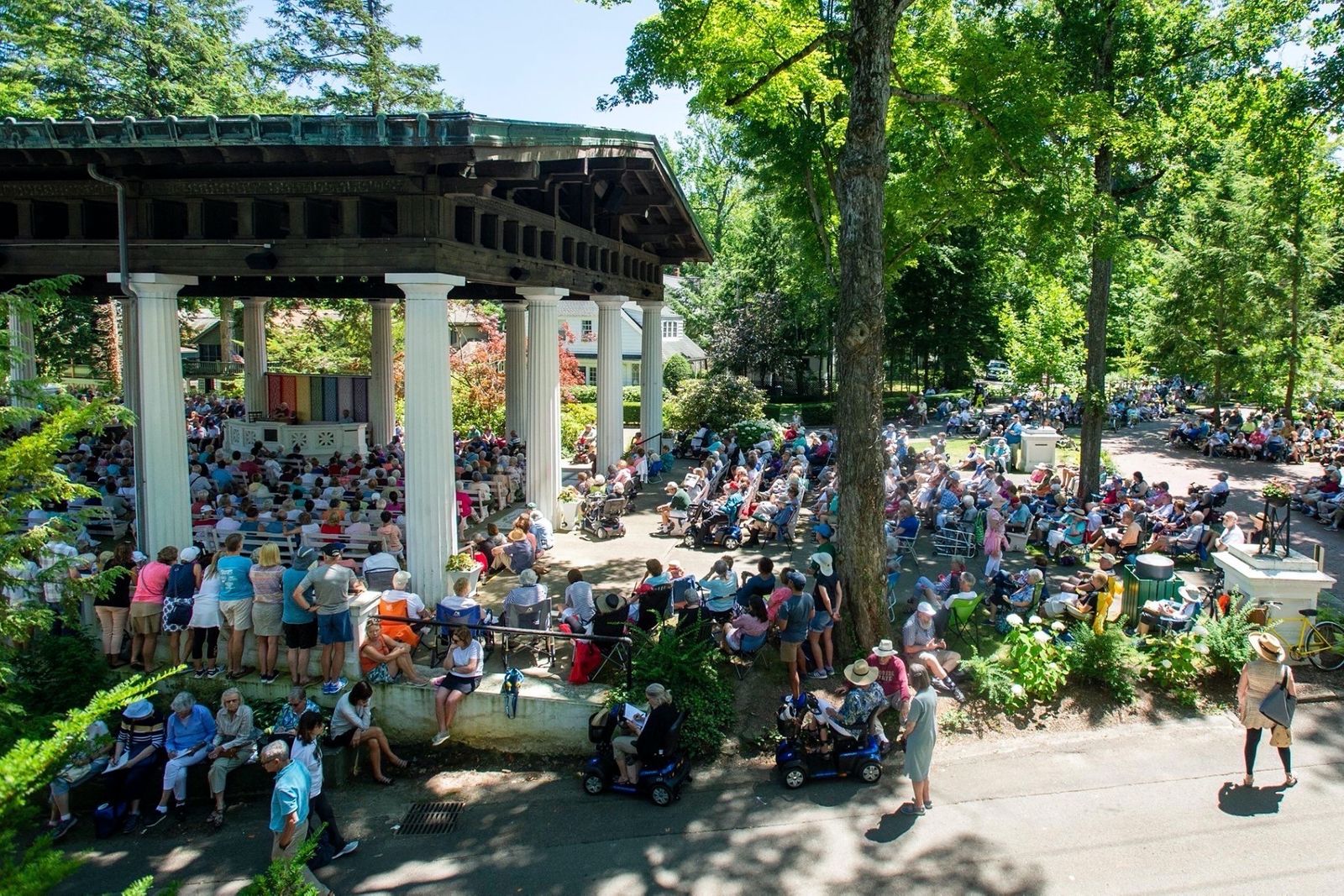Chautauqua: an idea embedded in a place
July 22nd, 2020
I want to tell you about the place I spent summers growing up. It's called Chautauqua Institution, and it's one of the most special places in the world — and not just because I spent my childhood there. Chautauqua is special because it is an idea embedded in a place.
The place is a small town in western New York, on the edge of the Great Lakes. Chautauqua's human-scale streets are lined with lovingly-tended gardens and charming Victorian cottages. No one locks their bicycles, children romp without adult supervision, and neighbors wave from front porches.
The idea embedded in this place is the Chautauqua movement, which began in 1874. It was an experiment in out-of-school learning, whose purpose was to provide an education and access to the arts to those who didn't have the opportunity attend college. 150 years later, the idea is still going strong. Chautauqua is a place of perpetual learning, one where everyone in the tight-knit community values learning new things and encourages each other to do so. 

"The season": Each summer, the community gets together to run 9 weeks of programs offering a wide range of speakers, performances, lectures, concerts, classes, parades, art fairs, theater shows, children's camps, waterfront activities, and more. Chautauquans live for this 9-week period each year, which they call "the Season".
These events are accessible to everyone in the community, which creates a shared context that shows up everywhere. When you order a cone at the ice cream shop, you overhear friendly strangers talking about the concert you saw last night. When you stop by the post office, the postman asks you what you thought of yesterday's Fourth of July parade. In an environment like this, it feels natural to start an interesting conversation with anyone on the street, because they're likely walking back from the same lecture that you just attended, too.
These programs are enjoyable in their own right, but the real value is that they select for people who care about learning and improving their community. There's a real sense of shared values, and many of the programs are run by self-organizing clubs. Chautauqua is a place created by the ~8,000 people who live there every summer, and they've shaped the place to their values.
Chautauqua's special approach to public goods: This is all supported by the Chautauqua Institution, the organization that operates infrastructure for the community to use. They build and maintain lecture halls, an amphitheater, a cinema, and other buildings specifically designed for the Chautauqua community's purposes. The Institution provides a platform for community-run organization to host events on top of without having to make big capital investments.
For example, my grandma was the president of the Bird Tree & Garden Club, and one memorable event they organized was to bring Jane Goodall to Chautauqua and talk about chimpanzees and preservationism. The Institution lent them a pavilion to host the event (rather than the club having to own a building of its own), but the club raised the funds to bring Jane to Chautauqua without the Institution's help. Chautauqua has a great mix of grassroots efforts that adapt to the community's interests as well as high-quality infrastructure at a bigger scale that only the Institution can provide.
 No need to lock up your bike at Chautauqua!  |  So many memories from sitting on the porch. 😊  |
How it grew: Chautauqua's history suggests a path for how to create more places like it. Chautauqua began as a summer school camp for teachers in 1874, and as they came back year after year, they invested in upgrading their canvas tents to little shacks and ultimately to full-fledged houses. Each step naturally flowed from the previous one. No one made any huge leap of faith. Each investment to make the place a little more livable met a real need of the community that was forming there.
The lesson I take from Chautauqua is that you can solve the cold start problem by building a ladder of commitment that people can ascend one step at a time. Instead of offering to build full-fledged homes right out the gate when there’s nothing there yet, host an annual recurring summer camp that people adore. If they come back year after year, they will naturally start to think "how can we make this more permanent?"
 Chautauqua began as a temporary 2-weeks-a-year tent camp. It has since evolved into a full-fledged town with comfortable cottages, colorful gardens, and robust infrastructure. | |
 Chautauqua provided opportunities for women in a time when they had little access to education. |  Chautauqua is home to the oldest continuous book club in America, the Chautauqua Literary & Scientific Circle. |
Chautauqua is so wonderful, but it's also confusing — why aren't there more places like this? Naturally, spending time here in Chautauqua prompts some questions:
- How could you adapt the Chautauqua format for different purposes and audiences?
- What would it take to create a successor of Chautauqua today?
- What places have you been that are like Chautauqua?
- Why does the programming at Chautauqua run for 9 weeks of the year?
- How would it change the dynamics if the season were longer or shorter?
- How does the rise of remote work and nomadic lifestyles change the the opportunities to build a Chautauqua today?
If you have answers, let me know!
Keep in touch!